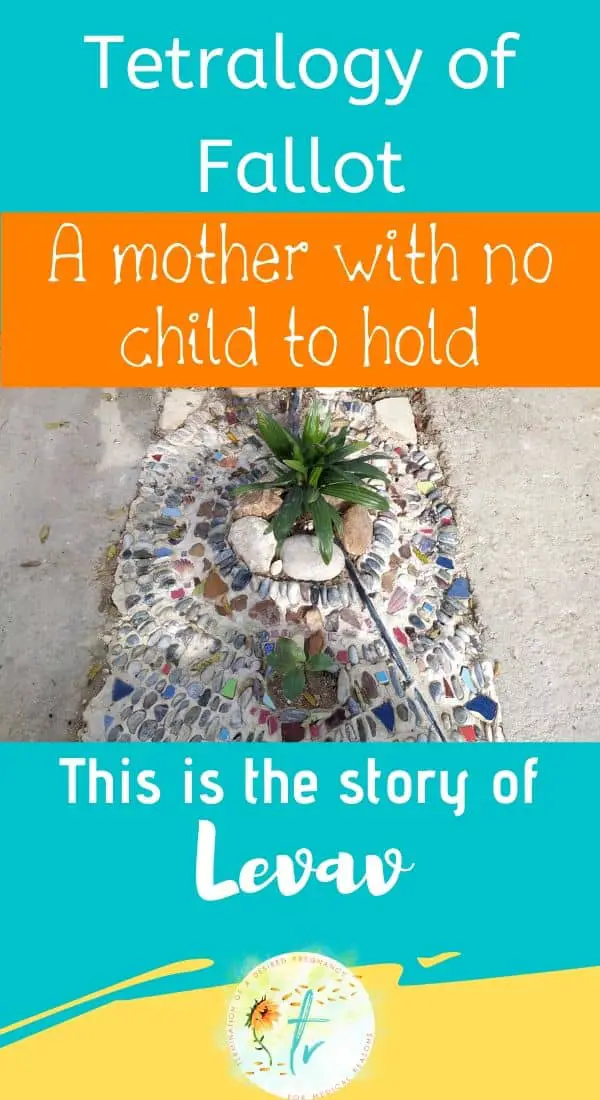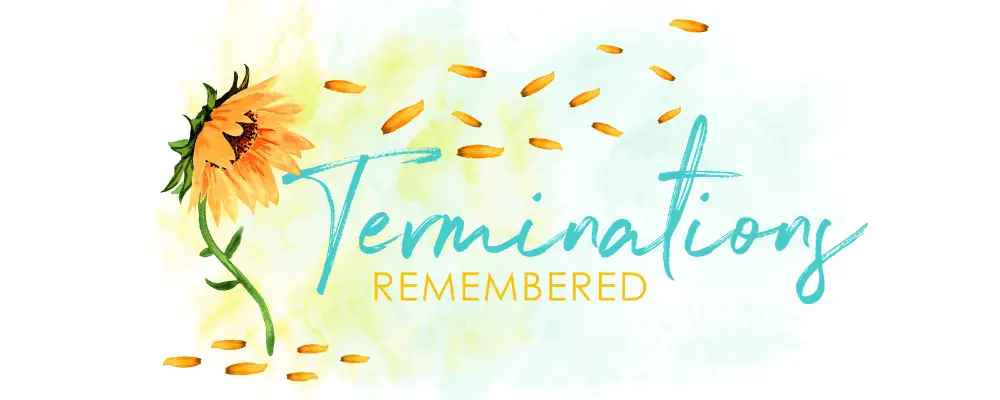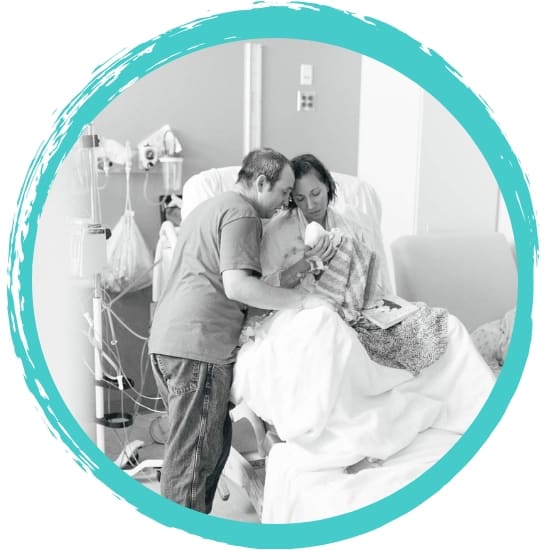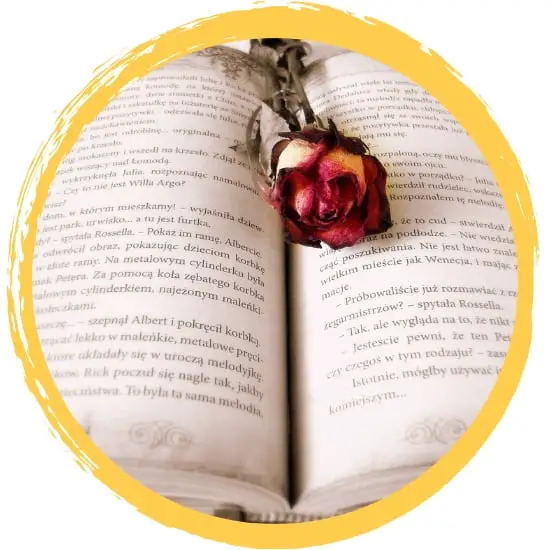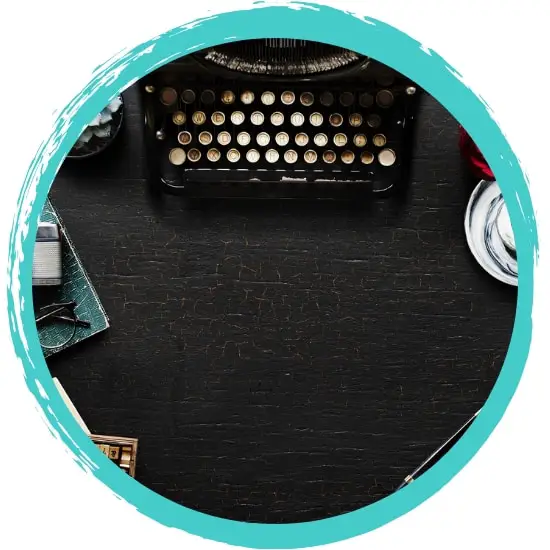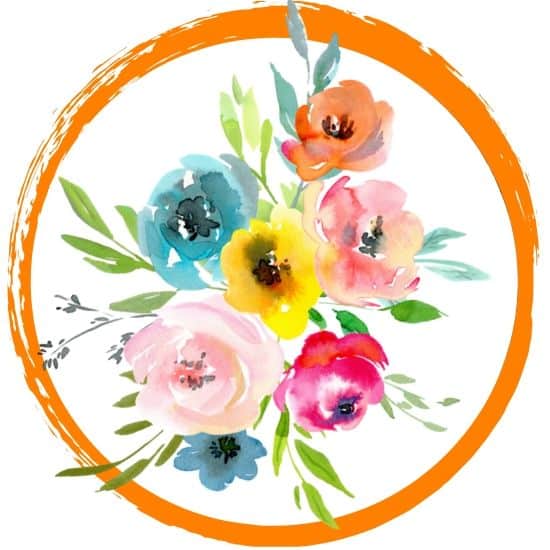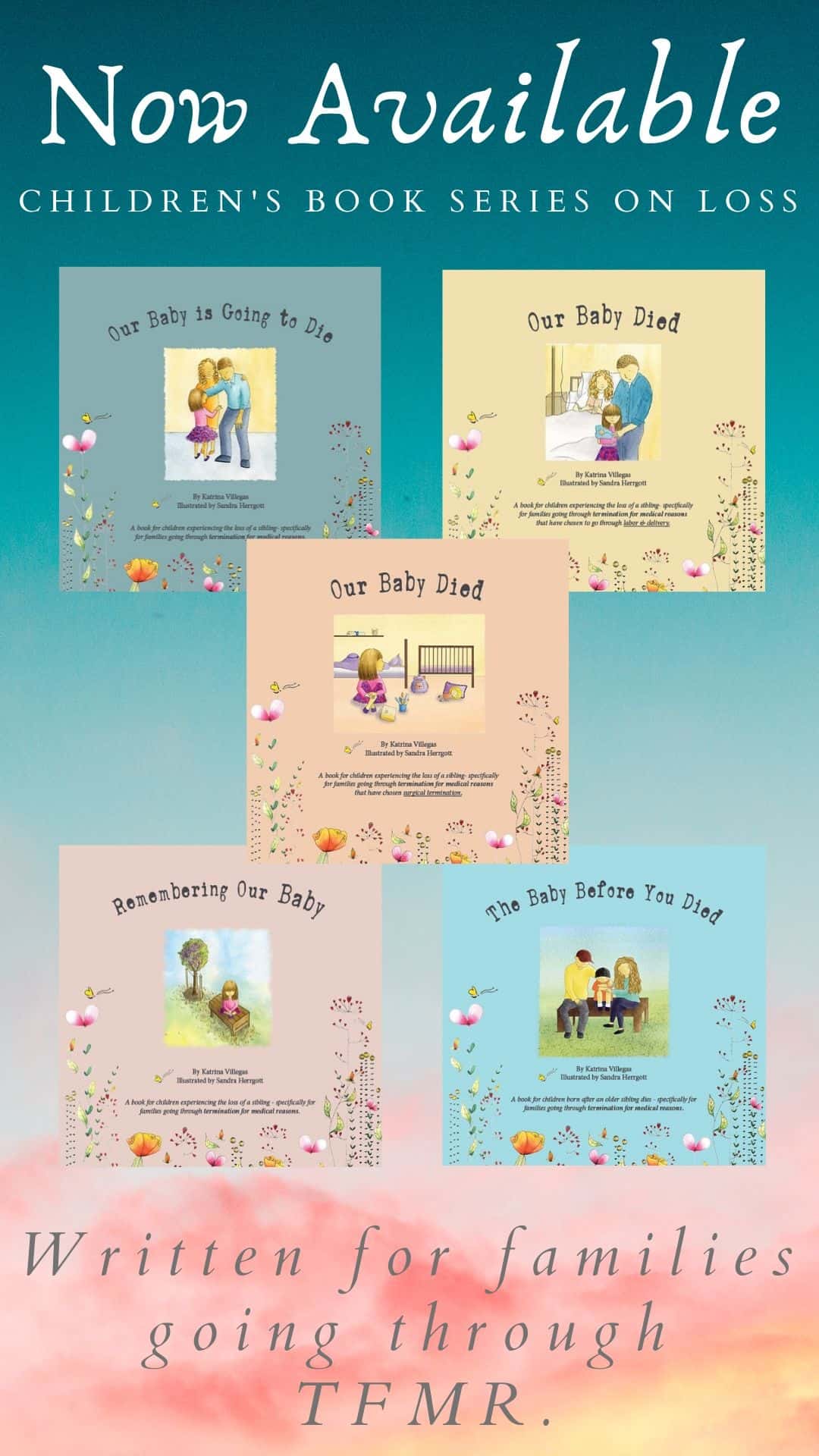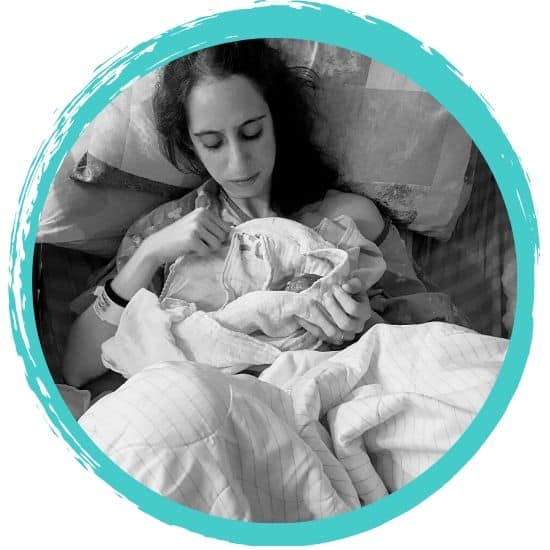
I want to tell you my story of the last few months.
I want you to know that I had a daughter. That I became a mother.
I was 24 weeks pregnant and I gave birth to a beautiful baby girl. She was not living. You see, we had learned a few weeks earlier that she had a heart defect called Tetralogy of Fallot and that many couples choose to terminate the pregnancy in this situation. The doctors asked us, what do we want to do?
What do we want to do? We want our daughter.
How do we even begin to consider such a question. It was an awful question. I felt hopelessly unprepared for it. I didn’t know that such a question could even be asked.
How do you go about making a decision like this? How are any of us prepared to choose between life and death? We listened and searched deep within ourselves. We discussed the possibilities, what both paths would look like. A dear friend and healer told us “both paths are blessed”. I understood that, deeply.
Our baby had a severe case of the condition along with an extra structural heart complication. The decision was agonising.
This baby would be our first and we wanted her so, so much. And yet I had my own health condition to consider, and I knew that this baby would need a healthy mother if she was to face multiple risky open heart surgeries in infancy and childhood. I knew that fear of death would hover, and I knew that I, we, would suffer.
After many tears, Ben and I understood that the right decision for us was to terminate the pregnancy, to let her go. We knew that we couldn’t bring such a sick baby into the world. Not for her and not for us. And I understood that this path was blessed.
And so we went ahead with terminating the pregnancy. Let me tell you some of that story.
At 24 weeks, terminating a pregnancy means having a birth. There is no way to turn away. The process is deeply physical from beginning to end.
Before birth there is an awful procedure to end the baby’s heartbeat, involving an injection into the baby’s heart while she was inside of me. During the procedure, we listened to a song of Jewish prayer, “Elohai neshama she-natata bi”.
The words are intended to describe our own souls, but here, I am describing the other soul inside of me: “God, the soul you put in me is pure. You created her, you breathed her into me, you protected her, and one day you will take her back”. Here she is, I thought, I’m letting her go.
The procedure was deeply emotional for us, and also for the doctor, who cried with us. The doctor truly cried with us. And I felt God in those moments. Those moments when we let our baby go. Because God, for me, is a deep and awakened connection to existence, and I think this is the most strongly I have ever felt that.
And then, the strangest thing, I realise: I am holding death inside of me but I am alive. I am alive but I contain death. For a whole day I am alive but housing death within. How? To be alive despite the death within.
I felt my own vitality and I felt heavy sadness within for what is lost. I wonder if any of you have felt this if you’ve had a miscarriage. That something inside of you is dead, but you are living. It was a somehow strengthening thought. That despite the horror, I am walking with life. I am alive. I am resilient.
So, after this terrible procedure, we were given a room and my labour was induced. It took 9 hours in total – actually a very short labour for such an early induction. I thank all the powers in the universe that I responded so quickly.
The labour was incredibly difficult. I had a lot of side effects from the medication. I was in a lot of pain, from the constant induced contractions. And pain of knowing that this should not be- that I should not have been in labour at 24 weeks with a baby who wasn’t living. This should not be.
My midwife had said to me, “You will find a way to be whole with it, to be whole going into the birth”. Sometimes just saying something can bring it to reality. She said that and so it was.
I found a way to walk into it whole. Only right at the end. I didn’t feel whole in the weeks of the decision. I was horrendously conflicted. But somehow I was whole at the birth, fully me, whole with my decision.
I felt wiser, older. I had held life and death in the palm of my hand. I had weighed up the most weighty decision there could be. Life or death. Baby or no baby. How to protect myself and care for myself. How to own this process and walk through it with a straight back and a whole heart.
I sit here now without a child. But I want you to know that I had a labour. That I gave birth. That I joined you, women who have birthed. That I too was in those truly vulnerable moments of labour of being fully in my body and its pain, and not in my thoughts. I was in my body-thoughts. My body was doing the thinking, the everything. Truly embodied.
And I also want you to know that I met my daughter and that she was wonderful, beautiful.
One of the tragedies of a stillbirth is that everything is about me, the labouring woman, not about the baby. There is nothing they can do for the baby, who is not living.
So I got all the care, they gave me pain medication without worrying about its effect on the baby, and the position of the baby was not important unless it could harm me. Perhaps I was birthing myself more than my baby.
It was both incredibly tragic and stunningly beautiful when she came out. I had done all the yelling, all the groaning, I had said all the swear words, made all the noises of a labouring woman, and it was anything but quiet.
But after she came out, it truly was a “quiet birth”, which is what stillbirth is called in Hebrew. The room was suddenly silent. They gave her to me, she was wrapped, just her face visible, eyes closed, unbelievably silent. Truly a “leidah shkeitah”. So quiet.
But so peaceful now. I felt peace, calm, joy even. I was so happy to see her. I looked at her and loved her and held her, for a long time. She was tiny and beautiful.
I remember going to sleep that night. There was a magic in the world. Surely birth must always take place at night, I asked myself. The night feels rich and magical, other-worldly, unreal. Could the daytime contain this much magic and mystery?
And so there was peace, and it lasted roughly a day. I felt strong, proud, calm.
But alas, it didn’t last. I soon fell apart, and I grieved, and I mourned.
And just like I had owned this whole process of decision and birthing, I too would own her burial. When you have a stillbirth, the hospital asks if you want to do your own burial or if you want the hospital to. We chose to bury her ourselves. We actually walked out of the hospital holding her.
Let me tell you one proud mother-moment I have: When we’d gone to collect her body, I noticed she still had the plastic clamp on her umbilical cord. I said that has to come off before we bury her! The man there tried to get it off. He couldn’t get it off, there was nothing he could do. I begged him, please, I can’t place her in the earth with a plastic clamp. Especially because here in Israel we bury bodies just wrapped in a sheet, no coffin, and so they are close to the earth. He tried some more, and eventually, finally, it came off.
Relief. And I’m telling you this because it was me being a mother, and I’m so proud of that moment. I knew I could not bury her with a piece of plastic, and I fought for her, and I won.
We buried her with her placenta, in the woodland cemetery in our small village of Hanaton. I carried her myself to the cemetery. Ben and I placed her in the earth together. Ben covered her with earth. I felt huge pain of separation as she went into the earth. Because at that point, she didn’t feel like a baby, separate to me. She felt like a limb, a part of me, which she had been for many months. And how do I part from a part of myself? Indeed a part of myself had died.
And in those days that followed, as the food and support poured in, I felt a sadness I didn’t know existed. Perhaps other women who have had terminations or stillbirths felt this too. A physical emptiness. That the baby that was inside is no more, not inside me and not outside being held by me.
And I felt the sadness and emptiness at night especially – night, the time when I used to feel the most movement of the baby, and now I feel nothing. Night, that time of magic and other-worldliness, is full of pain.
And meanwhile, my body was post-partum. I was post-partum but with no baby. I was bleeding and hurting. I put cabbage leaves on my breasts to stop the milk coming in. This should not be, I thought.
And while my body returned quickly to its original state, my soul did not. For I have walked through the valley of the shadow of death, and how could I be the same on the other side?
I can’t be the same, but I can build something beautiful. We knew we wanted to plant something on the grave, and I had the idea to also create a mandala from stones. I consulted an artist-gardener friend, and together we made the grave into something beautiful. A mandala-mosaic with plants in. And I am making a plaque with her name on.
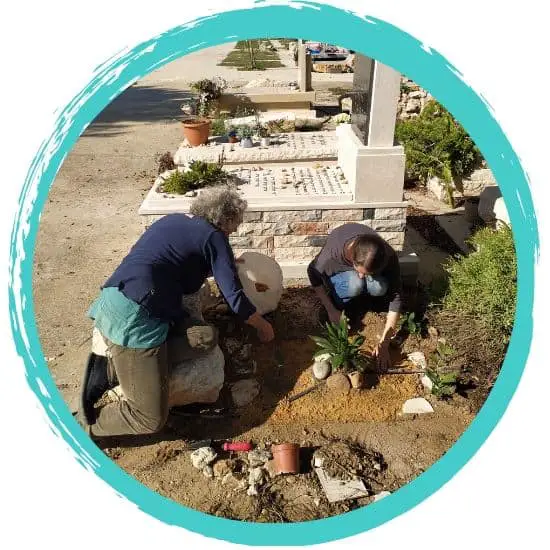
Her name? Her name is Levav. Levav. Ben’s father was Lev in Hebrew, and we wanted to name her after him. Both words mean “heart” in Hebrew and we thought of her name long before we discovered her heart problem. Levav truly lived her name.
So we created something beautiful at her grave and I’m so proud of it.
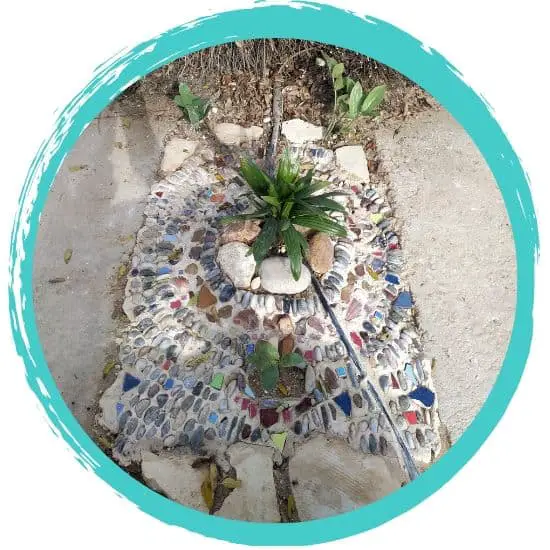
And then I mourned her. There is no Jewish mourning practice for stillbirth: no “kaddish”, “shiva” or “shloshim”. But there is mourning and there is grief. And I am grieving. I am grieving the daughter I lost, that I so badly didn’t want to lose.
And one more thing: what gives me strength? Watching nature change gives me strength. I walk a lot in the fields around Hanaton and I see that it takes seasons for things to change. The field now covered in fresh crop will have wheat taller than me come summer. The woods that were parched in the summer are now abundant with wild flowers. It takes seasons for things to change, and change and movement is certain, and that knowledge gives me strength.
Thank you for reading.
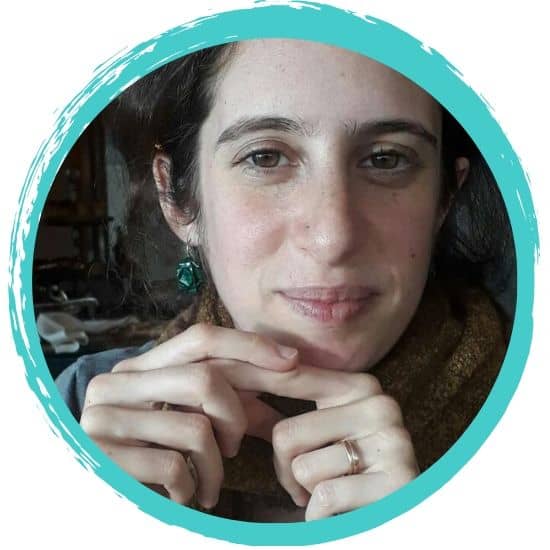
This story is bravely and boldly written by Levav’s mother, Ruthie Arkush.
I’m an acupuncturist specialising in fertility, pregnancy and childbirth. Originally from London, I now live in the Galilee in Northern Israel with my lovely husband Ben.
